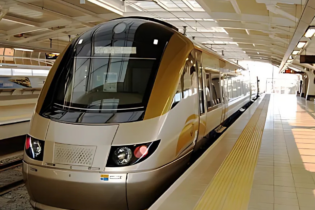As the lockdown impacts individuals and companies across the spectrum, prompting job losses and reduced working hours, Water Institute of Southern Africa (WISA) warns that government may be overlooking the other ways in which the virus is affecting people.
WISA director Dan Naidoo,asserts that the pandemic has created a ticking time bomb that threatens to disrupt the country’s entire water supply. The huge financial blow that ordinary people have experienced during the pandemic, such as reduced pay or job loss, is having a drastic impact on municipal rates collection. “If people are faced with the choice of paying their rates or feeding their children, they are going to choose the latter. And this non-payment, in a scenario already under serious financial pressure, could have a devastating effect on the general cash standing of municipalities,” said Naidoo,. Naidoo said this at a WISA Board meeting, which was held online recently. “Service delivery, including the provision of water, is the cornerstone of all economies. Non-payment affects the entire value chain upstream, and if our five big metros are already reporting tough times, how can we expect the smaller, poorer municipalities to survive?” Naidoo made reference to reports that the City of Cape Town had recorded R900 million in outstanding rates and service payments in April alone – or a one-third drop in income. Last month the City of Joburg announced it will revise its budget to cater specifically for COVID-19 repercussions as the number of ratepayers and residents paying their municipal bills continues to fall. It’s a “very difficult space”, warns Lester Goldman, WISA CEO, especially as the course of the pandemic remains so uncertain. “If South Africa’s economy continues to flag 18 or 24 months into the future, I predict that it will be extremely difficult for the government to continue making up the difference.” This would mean that the President’s hopes of raising private finance to support new water supply investments could be dashed. Funders need some assurance that loans for construction projects will be repaid and the water sector depends on user payments to be able to do that. Turning to water provision specifically, Naidoo explains that the job of sustaining such services that are critical to the national economy will be very challenging going forward. Citing Eskom as a “perfect case study”, he says Soweto’s R18.9million in unpaid bills to the power utility (as at 30 June last year) is an unfortunate example of what water utilities are likely to face. “The corruption issue aside, Eskom is a very good utility but is crippled by the enormous outstanding debt from municipalities. That is what we are going to see happen with water if municipalities cannot afford to service their debt because their reliable base of paying users is eroded by the impact of the pandemic.”It’s a vicious circle that, Naidoo stresses, will impact not only supply, but also investment in equipment, upgrades, maintenance, and preparation to meet growing future demand: “How can you invest in major capital expenditure if revenue streams are starting to slow down,” he poses.
In the current scenario, although non-payment is on the increase, so is domestic water usage especially. Hence, municipalities have to pay the water utility for the supply, but are not recouping the equivalent to fund the purchase. The situation of the rich subsidising the poor is not new in South Africa, Naidoo says, but what if that paying base of “the rich”, on which municipalities have long relied, starts to teeter? “The ability to service everyone is then at risk,” he emphasises. The situation is compounded by the fact that municipalities already lose out on the revenue from as much as 60% of the water that they purchase to sell on to users. This is due to a combination of three factors: leaking pipes, non-payers and illegal connections. “The challenge of this non-revenue water is one that we’ve been battling in this country for a long time. Effectively, this inefficiency means that for every 100 units that municipalities buy, 50% to 60% of that water is lost. So they pay for the 100, but are only getting 40, so they’re already in a bad place. “Now the reliable payers are also at risk, including the big payers, or businesses, which are using much less water due to the lockdowns anyway. And the longer people cannot run their businesses, their chances of coming back are more difficult.” Naidoo cites the unemployment crisis in the United States as a red alert for South Africa. If COVID-19 has decimated one of the strongest economies in the world, which is now recording “unheard of” job losses, he questions where that puts the South African economy. “It would be useful to know what the thoughts are currently within the municipal space about balancing revenue with service provision, because that’s difficult to do in a crisis like this. “South Africa is doing a good job of trying to secure water supplies for more people, especially in informal settlements, adding water and sanitation and sending tanks to remote areas and to schools. But it comes at a price,” he says. These are risk implications of which everyone should be aware, Naidoo stresses, and which are not unique to South Africa. “Water is a prime focus usually, and more so now as we battle the COVID-19 pandemic. But water is not free, and the country must be sure that it has the capacity to fund and maintain this critical infrastructure into the future.” Source: Water Institute of Southern Africa (WISA)





